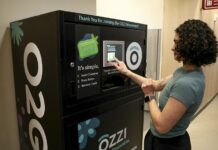Recently, on November 14, a newly released report emphasized the urgent and most important necessity of making use of reusable beverage packaging as an efficient and viable solution to the worldwide plastic challenge. A report from Oceana, which happens to be an ocean advocacy group, says that just a 10 percentage-point rise in the use of reusable beverage packaging by the end of the decade could go on to have an enormous impact. It is well to be noted that it has the potential to eradicate more than 1 trillion single-use plastic bottles as well as cups and, at the same time, prevent up to 153 billion of these containers from polluting the oceans along with the waterways. Notably, if all the 1 trillion bottles as well as cups that were avoided were stacked on each other, they would be able to reach the moon and back more than 300 times. Quite an alarming situation, isn’t it?
It is worth noting that global beverage industry leaders, such as The Coca-Cola Company and PepsiCo, have already gone on to establish very broad reusable systems worldwide. They have gone on to make a commitment to raise their efforts and endeavors by increasing the proportion of beverages that are sold in reusable packaging by a minimum of 10 percentage points by the year 2030. Oceana suggests that it is indeed crucial for these companies to stick to their pledges and for the entire industry to give utmost importance to reuse over single-use so as to effectively tackle the crisis of plastic pollution in oceans. Reusable packaging happens to be a well-established circular solution that has the capacity to significantly and, at the same time, rapidly decrease production as well as subsequent ocean pollution caused due to plastic bottles and cups. Beverage companies often go on to promote other ideas, like increasing the usage of recycled content in plastic bottles. However, it is significant to note that these ideas are not specifically aimed when it comes to reducing single-use plastic containers, and hence they cannot have the same level of impact and effect as reusing containers.
Matt Littlejohn, who happens to be Oceana’s Senior Vice President for Strategic Initiatives, expressed concern in terms of excessive time spent pursuing circular fantasies rather than addressing the significant inroads of plastic into the oceans. In 2022, it was said that the beverage sector would use enough single-use plastic packaging so as to create a stack that could stretch from the Earth to the sun and back. The addition of recycled content when it comes to bottles and cups alone will not be enough to eradicate the problem of single-use plastic. To truly have a great impact, it is crucial to substitute single-use plastic with that of reusable packaging. It is critical for companies as well as governments to shift their focus from recycling to making the growth and restoration of reusable packaging systems a priority. By ensuring to adopt this circular solution, one can significantly decrease the quantity of plastic waste that goes on to pollute the oceans, harm marine life such as whales as well as turtles, and gets accumulated on the beaches.
The report also highlights the widespread usage of large-scale reusable packaging systems throughout the globe. For example, in the Philippines, 40% of the entire packaged non-alcoholic beverages get sold in reusable bottles. Furthermore, the report also emphasizes the existence of many large-scale reusable cup systems, such as TURN, r.World, as well as Re-Uz, that look promising and are at present available in both the United States and Europe. Major companies, such as Live Nation, have already embraced these systems. Live Nation has recently made the decision to transition to the TURN reusable cup system at their major concerts as well as venues. This move is aimed at lowering their environmental footprint. Re-uz, which happens to be a French provider, has been chosen as the delivery partner for the 2024 Olympic as well as Paralympic Games. The partnership goes on to align with their commitment to significantly reduce the amount of single-use plastic that would be used during the Paris Games, thereby aiming to cut it in half compared to the London 2012 Games.
Dr. Dana Miller, who is Oceana’s Director of Strategic Initiatives, emphasized that the companies have to take ownership to prioritize the usage of reusable packaging over single-use packaging. The fact is that the oceans cannot wait, and one requires tangible as well as proven solutions, such as reuse, that can effectively go on to reduce the usage of single-use plastic and at the same time combat marine plastic pollution on a large scale immediately.



























